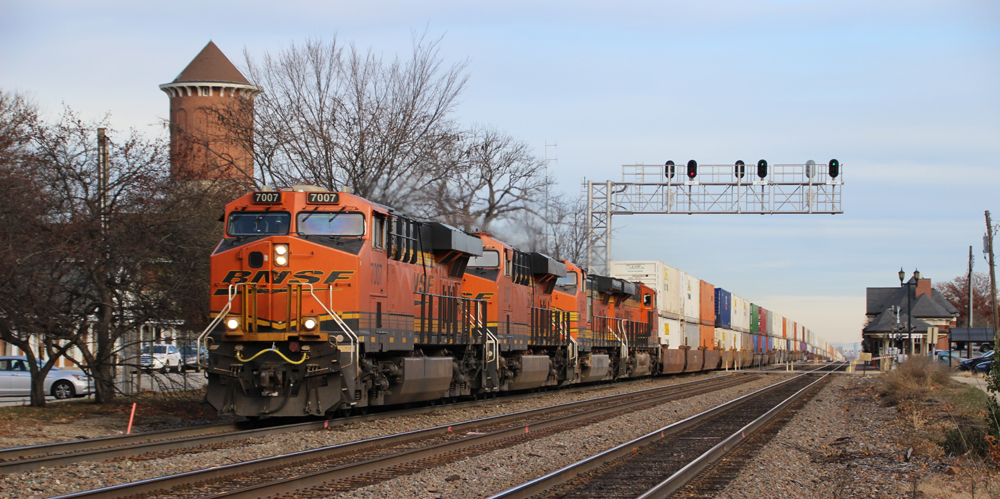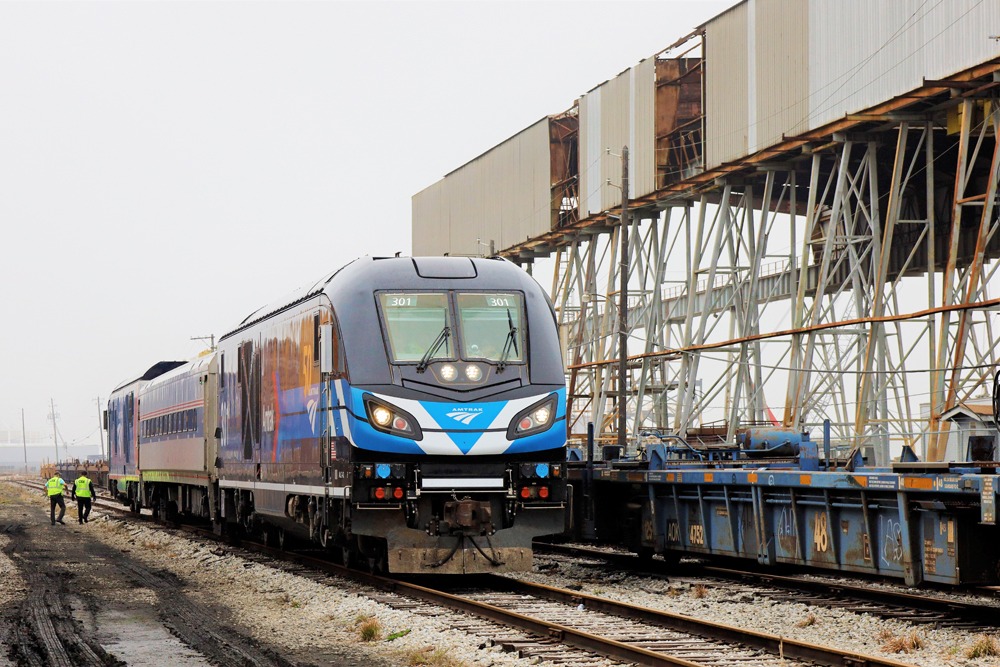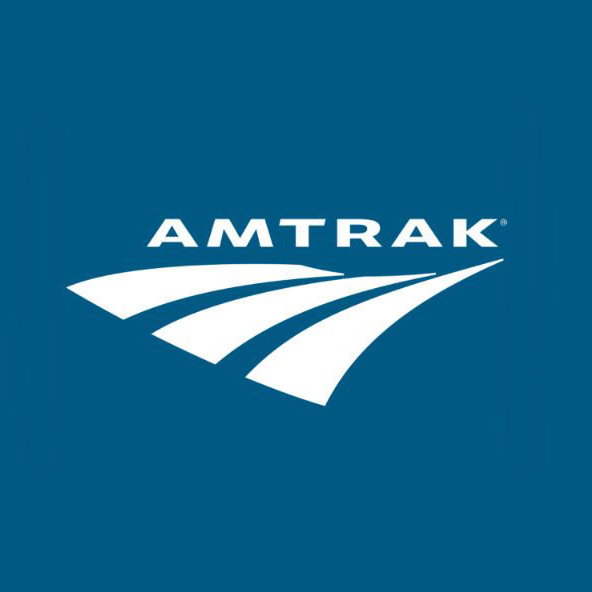
FORT WORTH, Texas — BNSF Railway’s plans to institute a new attendance policy while a new labor agreement is under negotiation is contrary to the terms of the Railway Labor Act, the Brotherhood of Locomotive Engineers and Trainmen argues in a new court filing.
The Thursday filing with the U.S. District Court in Fort Worth is in response to BNSF’s suit which led to a temporary restraining order on Tuesday, preventing a potential strike by 17,000 workers over the new “Hi Viz” attendance plan [see “Judge blocks strike by BNSF unions …,” Trains News Wire, Jan. 25, 2022]
The union filing argues that Section 6 of the Railway Labor Act “requires the parties to maintain the status quo until a new agreement is reached, which means that the rates of pay, rules, and working conditions … shall not be altered until a new agreement is reached.” Coalitions representing railroads and unions have been negotiating a new national agreement since 2020; that process is now heading to mediation after unions declared an impasse [see “Railroads say they welcome unions’ request for mediation …,” News Wire, Jan. 24, 2022].
Instead, the filing says, BNSF unilaterally imposed the new attendance policy. The union also claims the new policy penalizes union officials who lay off work to attend to union business, including representation of employees in disciplinary proceedings, contrary to existing agreements.
The union asks that the court restore the existing working conditions “unless and until those terms are altered” in negotiations, and that it order the railroad to negotiate “to protect the integrity of good-faith bargaining.”
The filing also outlines in detail many of the union’s objections to the new policy, which it says violate existing agreements. Among them: “The draconian Hi Viz policy is so restrictive or harsh that it denies employees reasonable lay off privileges,” which the union says is guaranteed under a 1994 agreement; that it reduces the time allowed for engineers to choose a new assignment after being bumped from the current 24 hours; and that it infringes on vacation time by disciplining those who turn down a work assignment to start a previously scheduled vacation.
The filing casts all of these as constituting a “major dispute,” which would make a threatened strike legal. BNSF has cast the dispute as minor, which would make it subject to arbitration and would make a strike illegal.
The BLET and International Association of Sheet Metal, Air, Rail, and Transportation Workers-Transportation Division (SMART-TD) indicated they would consider a strike earlier this month in response to BNSF’s plans to institute the new attendance policy on Feb. 1 [see “BNSF unions threaten strike …,” News Wire, Jan. 13, 2022]. That led BNSF to go to court to prevent a strike, leading to the current temporary restraining order, which is in effect until Feb. 8.














Gee, an attendance policy…how novel. Every place I worked at in my forty-six year working career had one.
No intelligent person would put his life into the hands of a class 1 operating job, ask any retiree or those who are quitting in droves rather than being enslaved; bottom line it aint worth the pay these days
Maybe I’m old fashioned(retired teamster from freight carrier segment of the industry)but a stunt like that would be arbitrated out on the bricks.
If I were a conductor or locomotive engineer, I would consider this major,
Anyone hear how the voting went with union membership as to whether or not to strike?
There’s lots of pieces to pick apart here but how does the carrier justify not allowing union local chairman to lay off in order to attend a disciplinary investigation? For the uninitiated, the railroad uses informal disciplinary processes like counseling and “write ups” for minor offenses in the beginning before starting the formal process which are actual hearings. These investigations are vitally important for the employee as many rule violations are three strikes and you do not have a job anymore…termination. The hearing has a presiding officer which is sorta the judge and then a charging officer which is kinda like a prosecutor, tho both are company management officials, like trainmasters. The employee is represented by his choice but typically is someone in the union, like a local chairman, who functions as the defending attorney. Unless you have personal experience with these hearings you’re gonna want someone to represent you who is familiar with the technical aspects of the process and I’m at a loss as to how the carrier can fulfill its obligations to this process if the guy you need sitting next to you in the room is at work! Anyway, the hearing is recorded and later transcribed and that written record will serve as the basis for your appeal, should the carrier find you guilty.